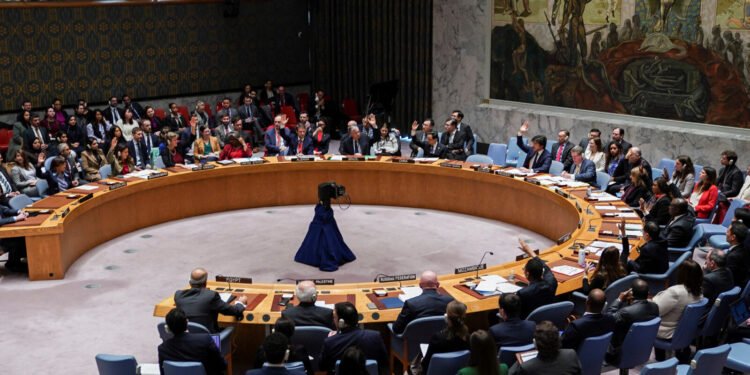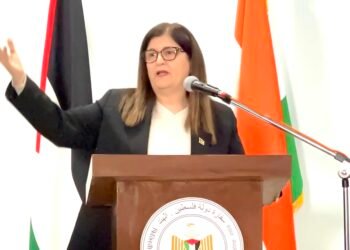UNITED NATIONS (WNN): In one of the most consequential moves in recent years, the United Nations General Assembly on Friday overwhelmingly endorsed a declaration that lays out “tangible, timebound, and irreversible steps” toward a two-state solution to the Israeli-Palestinian conflict.
The resolution—passed with 142 votes in favor, 10 against, and 12 abstentions, marks a diplomatic watershed ahead of the September 22 high-level UNGA meeting, where Britain, France, Canada, Australia, and Belgium are expected to formally recognize a Palestinian state.
The seven-page declaration, drafted at an international conference in July co-hosted by Saudi Arabia and France, goes beyond symbolic rhetoric. It explicitly condemns the October 7, 2023, Hamas attacks on Israel, while also holding Israel accountable for what it calls “indiscriminate attacks on civilians, siege and starvation in Gaza” that have created a “devastating humanitarian catastrophe.”
France’s Foreign Minister Jean-Noel Barrot hailed the outcome as “a decisive moment that isolates Hamas internationally.” Gulf Arab states unanimously backed the resolution, underlining a rare alignment between Western powers and Arab governments.
But the United States and Israel, which boycotted the July conference, rejected the resolution outright. U.S. envoy Morgan Ortagus dismissed it as “a misguided and ill-timed publicity stunt” that “emboldens Hamas rather than advancing peace.” Israel’s UN Ambassador Danny Danon called it “political theater,” insisting that the resolution “only benefits terrorists.”
Behind the vote lies a deepening global divide. While Washington continues to shield Israel diplomatically, even its closest allies in Europe are recalibrating policy by moving toward recognition of Palestinian statehood. This reflects growing frustration with the unending cycle of violence and the humanitarian toll: over 64,000 deaths in Gaza, according to local authorities, since the war erupted in response to Hamas’s October 7 assault that killed 1,200 Israelis and left 251 taken hostage.
The declaration also calls for the immediate end of the war in Gaza and endorses the deployment of a temporary international stabilization mission under a UN Security Council mandate—an idea that, if implemented, would mark a significant shift in how the conflict is managed on the ground.
For regional powers like Saudi Arabia, the resolution strengthens their hand in positioning themselves as brokers of a post-war settlement, while France sees it as a chance to assert Europe’s voice in Middle Eastern diplomacy. For Israel and the U.S., however, the declaration signals the erosion of diplomatic support they have long relied on at the UN.
As the September summit approaches, the stakes are higher than ever: whether this declaration becomes the foundation of renewed peace efforts or another symbolic text destined for the archives will depend on how world leaders act in the coming weeks. What is certain is that the vote has reshaped the diplomatic battlefield, exposing deep fractures but also hinting at a global shift toward recognizing Palestinian sovereignty as central to ending the conflict.
-Richard Govan



















